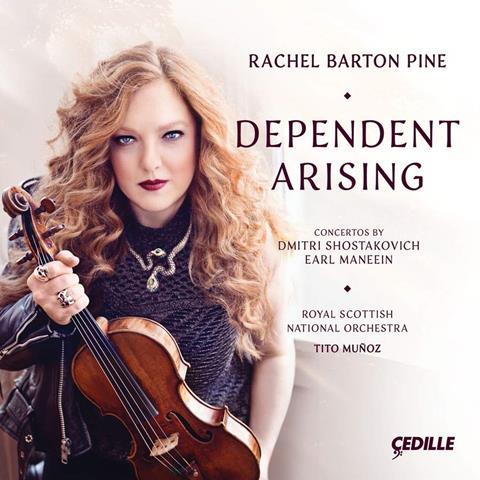A Russian concerto meets thrash metal and comes out on top

The Strad Issue: October 2023
Description: A Russian concerto meets thrash metal and comes out on top
Musicians: Rachel Barton Pine (violin) Royal Scottish National Orchestra/Tito Muñoz
Works: Maneein: Dependent Arising. Shostakovich: Violin Concerto no.1
Catalogue number: CEDILLE RECORDS CDR90000 223
There’s a lot going on here, and it begins with US violinist Rachel Barton Pine’s enduring love of thrash metal, which she professes in her illuminating booklet-note. As a result, she asked heavy metal violinist (and leader of rock band Resolution15 and founder of string quartet Seven)Suns) Earl Maneein to write her a solo piece, resulting in a full-scale thrash metal violin concerto for Pine, Dependent Arising. Then came the question of what to record alongside it, to which the answer was Shostakovich’s First Violin Concerto.
They might appear a disconcerting pairing, but the two works share a lot in terms of raw emotion and sometimes grotesque excess – certainly in Pine’s muscular, defiant account of the Shostakovich. There’s a lot to pick at there: the strangely unbalanced recording, for a start, which places her so forward in the mix that at times she obscures the vivid playing from the Royal Scottish National Orchestra. Or her unwavering confidence and determination, strongly projected throughout, that seems to pay little heed to the composer’s darker moments of despair. That said, it’s a gripping, overwhelming account, so full of intensity and self-belief (not to mention manic energy) right from the start that there’s no chance of attention ever wandering.
Read: Seven)Suns: how we play metal on stringed instruments
Read: ‘I imagine dialogues with Schumann and Bartók!’ - Rachel Barton Pine’s life lessons
In comparison, Maneein’s heavy metal concerto feels surprisingly tame – despite its hammer-blow chords and moments of screaming aggression, you’d hardly know it was metal-inspired (particularly its naively sentimental slow movement) if the composer’s witty booklet-note hadn’t told you so. Pine dispatches the frenzied virtuosity that Maneein calls for with ease and unerring precision, and the swagger of his noisy finale brings out her larger-than-life flamboyance magnificently. If you can forgive the unapologetic excess in both pieces, this is a genuinely thrilling ride.
DAVID KETTLE











































No comments yet